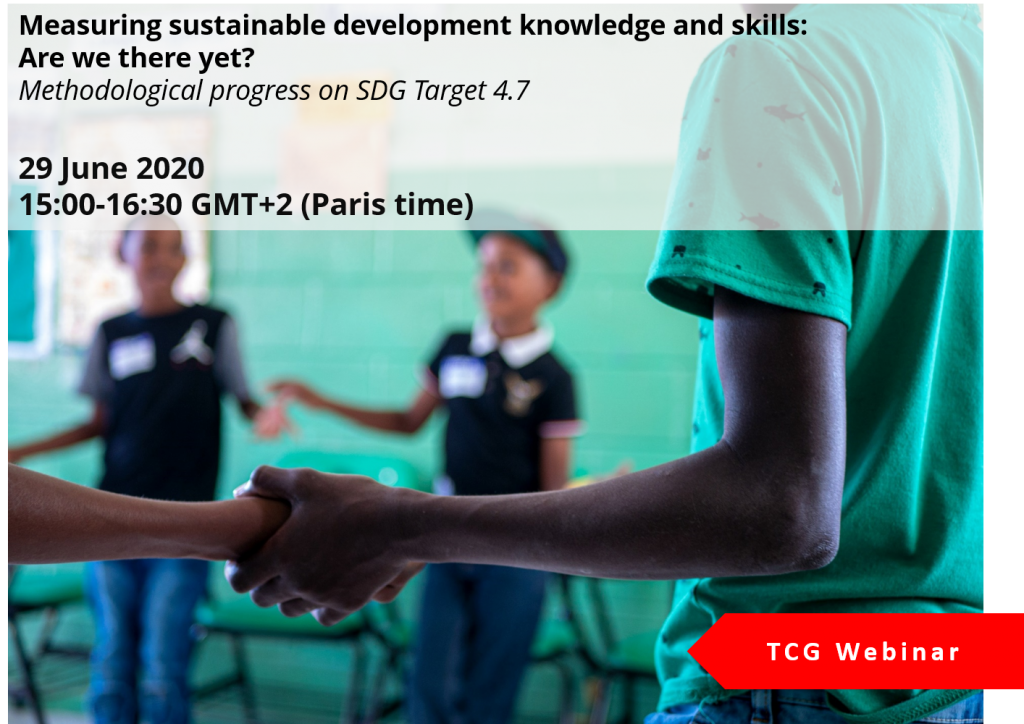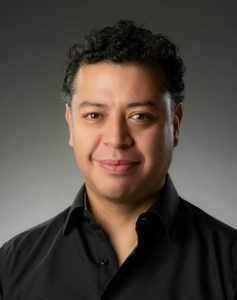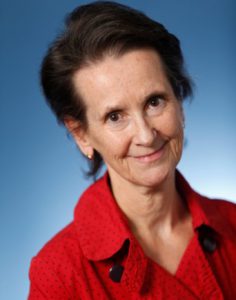
SDG Targets, 4.7 refers to the knowledge and skills that are necessary for a sustainable future. Specifically, it states that by 2030, we have to “[…] ensure that all learners acquire the knowledge and skills needed to promote sustainable development, including, among others, through education for sustainable development and sustainable lifestyles, human rights, gender equality, promotion of a culture of peace and non-violence, global citizenship and appreciation of cultural diversity and of culture’s contribution to sustainable development.”
The UNESCO Institute for Statistics (UIS) presented a webinar to look closely at the two (out of five) thematic indicators approved for SDG 4.7 monitoring - 4.7.4 (global citizenship) and 4.7.5 (environmental science). In addition, we reviewed a new proposed indicator on breadth of skills.
The 21st century demands a broad set of skills that range from respect to diversity, emotional skills to creativity, ingenuity, and ‘thinking outside the box’ - all important skills and determinants of how future generations will interact with each other and their environment. Building on two reports previously published by the Global Alliance to Monitoring Learning (GAML) describing a proposal of a measurement strategy for these two indicators, items international large-scale assessments in education (ILSA) are used to fit measurement models, generate scores, and propose a method to establish cut-off points for SDG Thematic Indicators 4.7.4 and 4.7.5.
- Indicator 4.7.4 Percentage of students in the final grade of lower secondary education showing adequate understanding of issues relating to global citizenship and sustainability
- Indicator 4.7.5 Percentage of 15-year-old students showing proficiency in knowledge of environmental science and geoscience
The 21st century demands a broad set of skills that range from respect to diversity, emotional skills to creativity, ingenuity, and ‘thinking outside the box’ - all important skills and determinants of how future generations will interact with each other and their environment. In this ever-changing world, young adults are expected to be able to determine the relevance of information, distinguish between fact and opinion, identify unstated assumptions, detect bias, suggest reasonable and plausible solutions, predict possible consequences, and make relatively quick and informed decisions. These competencies will not be acquired and mastered without the development of a broad set of cognitive skills, such as critical and creative thinking, problem solving, and social skills, such as communication and collaboration.
In order to ensure enabling environments and provide the opportunity for the development of this broad set of skills, nations need to commit to the attainment of Target 4.7 by embedding skills development through education policies and education sector planning. Therefore, an additional indicator is proposed as follows: “Extent to which national education policies and education sector plans recognize a breadth of skills that needs to be enhanced in national education systems”.
During the webinar, the invited guest speakers went into more detail on the following objectives:
- To present the methodological developments for Thematic Indicators 4.7.4 and 4.7.5, including different concepts
- To explain how International Large Scale Assessments (ILSA) can be used as powerful instruments to report on SDG Indicators 4.7.4 and 4.7.5
- To introduce the conceptual framework for a newly proposed indicator for Target 4.7 on breadth of skills
The meeting was open to the public and a recording is available here. See the section reference documents below for the presentations of the speakers.
Speakers |
|||
|
|
|
|
|
Silvia MontoyaDirector, UNESCO Institute for Statistics |
Andres Sandoval HernandezReader, University of Bath |
Diego CarrascoResearcher, Pontificia Universidad Católica de Chile |
Esther CareSenior Fellow, Brookings |
Moderator |
|||
 |
|||
Luis CrouchSenior Economist, RTI International |
Reference documents
- Concept Note
- A Measurement Strategy for SDG Thematic Indicators 4.7.4 and 4.7.5 Using International Large Scale Assessments in Education
- New Indicator Proposal for SDG Target 4.7: Conceptual Framework
Presentations
- UNESCO Institute for Statistics (By S. Montoya)
- SDGs 4.7.4 & 4.7.5; An applied framework to measure indicators on education for sustainable development and global citizenship education (By A. Sandoval Hernandez & D. Carrasco)
- Conceptual framework: Breadth of Skills Indicator for Target 4.7 (By E. Care)
- Video of the webinar



